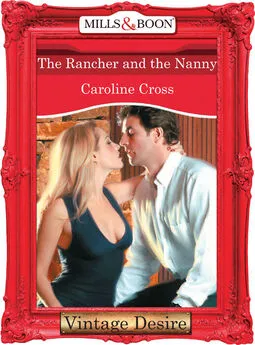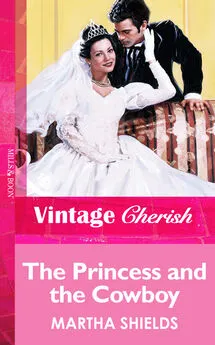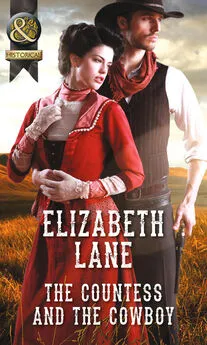John Creasey - The Toff and The Sleepy Cowboy
- Название:The Toff and The Sleepy Cowboy
- Автор:
- Жанр:
- Издательство:неизвестно
- Год:неизвестен
- ISBN:нет данных
- Рейтинг:
- Избранное:Добавить в избранное
-
Отзывы:
-
Ваша оценка:
John Creasey - The Toff and The Sleepy Cowboy краткое содержание
The Toff and The Sleepy Cowboy - читать онлайн бесплатно полную версию (весь текст целиком)
Интервал:
Закладка:
“We don’t stick a pin in unless the report seems convincing,” said Grice. “For every one you see here the newspapers must have had twenty other reports. There can’t be any doubt, Rolly; King is at the Browns’ house where he’s often been before. No wonder Loman was warned off!”
“No wonder,” echoed Rollison. “Any word of Hindle?”
Grice said softly: “Some reports, yes.” He pointed to some ordinary steel pins without coloured heads, which were also clustered near the Browns’ house. “Reports that a man answering Hindle’s description have come fairly frequently. Seven reports — as you see there are seven pins — seem reliable. If they are, Hindle and his wife went to the Browns’ home about an hour and a half after the fire at Rubicon House yesterday afternoon.”
“Well, well,” Rollison said, heavily.
“So,” said Grice, “we shall move in.”
Rollison looked at him broodingly.
“Must you?” he asked.
“What a thing to ask! Of course we must. Hindle must be questioned about employing the motor-cyclist, and King —” Grice broke off. “It’s true there’s no evidence except yours that King is involved, and yours is circumstantial, but he has to be questioned.”
“Yes,” said Rollison, and then with a great effort: “Indubitably.”
Grice gave him a long, sour look.
“What’s on your mind?” he demanded.
“Hand grenades,” Rollison replied.
Grice made no comment.
“Presumably you have the house cordoned off,” Rollison went on. “Presumably at a given signal your men will move in. How many? Ten? Twenty? Thirty?”
“At least thirty,” Grice said, uneasily.
“How many casualties do you think you’ll have?”
“We shall take every possible precaution,” Grice growled.
“Soothing for the widows,” observed Rollison.
“Rolly, we have reason to believe two wanted men who may be responsible for these murderous attacks are in the house, and that the Browns are giving them shelter. We simply have to go in.”
Rollison looked at him levelly, and after a while said very quietly:
“It will be a mistake, Bill.”
“You simply don’t understand!” Grice insisted, and now his voice was very rough. “If there are more grenades and fire bombs in that house, if the Browns are the distributors, we have no time to spare.”
“You could ask for military help,” Rollison pointed out.
“And perhaps create a crisis situation.”
“Yes,” Rollison said. “Yes. Bill.”
“No,” Grice growled.
“Bill,” Rollison repeated, “you don’t really have a choice. If some scatterbrained private individual is prepared to visit the Browns’ house and look round, you have to let him. No policeman could be sent on his own — you know that perfectly well. One policeman is too many. But they would let me in.”
“There is no evidence at all that they would let you out.”
“No,” agreed Rollison. “However — I think I have one rod ready for them which might pickle nicely.”
“Rolly,” Grice said with absolute decisiveness. “I will not let you go.”
“Bill,” Rollison replied, very quietly, “you know perfectly well you can’t stop me. I can go where I like as a private individual. You have no grounds at all for detaining me. Have you?”
Grice did not reply.
“You know you haven’t,” Rollison went on as quietly as before. “But I don’t want Jolly to know where I’ve gone — nor Tommy Loman, who will tell Jolly and will also want to come with me.”
“I’d rather he went than you,” Grice growled. “But he could not hope to do any good.”
“Rolly, if these are the people who have been throwing bombs at you, you are walking right into their arms.”
“My strength,” Rollison declared.
“I don’t follow you.”
“You’re too worked up about this affair,” Rollison told Grice, gently reproachful. “You aren’t letting your-self think clearly. They will know that you will know I’ve gone there, and if they don’t let me out, then it’s a declaration of war on the police.”
Grice said: “They may take the chance.”
“Yes,” Rollison said. “They may. It really depends on what the affair is all about.” After a few moments he went on: “There’s no reason why we shouldn’t have a time limit. Say, an hour from the time I go inside. And there’s every reason why we should lay some careful plans before I go in. By the way, may I see this New York policeman, what’s his name?”
“Luigi Tetano.”
“That’s the chap.”
“Why?” asked Grice.
“I’d like to find out other evidence he has to suggest that the doping of Tommy Loman might have been connected with the baggage racket,” Rollison said, and suddenly gripped Grice’s shoulder. “Bill, I’ve walked into trouble as ugly as this a dozen times.”
“I don’t think so,” Grice objected. “I do think —”
“Well?”
“I think you know something these people fear be-coming common knowledge,” Grice said. “It’s the only reasonable explanation of the way they’ve set out to kill you. Are you sure you don’t know what it is?”
“I don’t have the faintest idea,” Rollison answered. “Yet.”
He had a sense that Grice had acknowledged defeat, and was not going to fight any more; he also suspected that when Grice took him back to his office and went out, ostensibly to fetch Luigi Tetano, he was also going to talk to his superiors. Rollison waited by the window which overlooked Victoria Street, seething now with traffic. The rain had stopped and the sun shone fitfully, while the sky between the breaks in the white cloud was a vivid blue. Very soon, Grice came back with the American, who advanced slowly towards Rollison, saying:
“Mr. Rollison, I’m proud to meet you.”
“Oh, dear,” Rollison said. “That’s always an in-timidating way to begin. Did you really hop that plane without permission, just to follow your hunch?”
“Yes,” answered Luigi. His eyes had the brightness of a doe’s, his cheeks were soft and sallow, pale; like a woman’s. He had a bow-shaped, gentle-looking mouth.
“Then I’m proud to meet you,” Rollison said, as they shook hands.
Luigi laughed: “Thank you!”
“Lieutenant —”
“Sergeant.”
“Sergeant, why was your hunch so strong? Why did you think this cowboy from Tucson had special signifi-cance?” He saw Grice go out, and only essential busi-ness would have taken Grice away at that particular moment. The American rubbed his chin with his thumb and forefinger before replying:
“I don’t know, Mr. Rollison. I simply don’t know. Except —” He paused.
“Except what?”
“Except it seemed to me he might have something very special in his baggage for them to give him a shot and make sure he didn’t wake up in time to prevent them from claiming it.”
“Nothing else at all?” asked Rollison. He had not really expected more, and yet he was disappointed. He liked the other man, could well believe that he had taken the chance exactly as he had said, and yet . . .
“Mr. Rollison, the whole set-up seemed phoney,” Tetano declared at last. “It seemed to me they might be drawing attention to this cowhand while they were doing something else, and I wanted to find out what the some-thing else was. That’s one reason I am so mad, I allowed him to be doped in the B.O.A.C. plane, but when I saw him in his seat I got out quick to see if I recognised any of the other passengers. I didn’t and came to the conclusion it was not part of the baggage racket. Now maybe I wonder if it has anything to do with these bombthrowings. And I guess —” his eyes crinkled at the corners as he went on: “I wondered if you know more about it than you admit.”
“So Bill Grice has been talking,” Rollison remarked.
“Yes, sir, he has been talking,” replied Tetano. “He seems to think you are a cross between a saint and Machiavelli. He lives in a state vacillating between being frightened of what you’ll do next and being frightened for you.”
“Just between you and me,” said Rollison, “I think I’m a little frightened for myself, too.”
He looked up as Grice returned, pale-faced; shook hands with Luigi Tetano, who went out with a chief inspector who followed Grice in, then raised his hands in a hopeless kind of gesture.
“Still of the same mind?” Grice demanded.
“Yes, Bill.”
“I’ve instructions not to try to stop you if you’re set on going into the place,” announced Grice. “And not to encourage you, either. Rolly, I’d a thousand times rather go myself.”
“I know you would,” replied Rollison. “But if they are what you fear they are, they wouldn’t let you in. They will let me in — and they may even let me out. One thing, Bill, or rather two.”
“Anything.”
“First, don’t let Tommy Loman out of my flat,” said Rollison. “He could go to the Browns’ house and ruin everything.” Grice nodded. “Second, don’t let Luigi Tetano leave the Yard until you hear from me.” Grice looked surprised, but nodded again. “Now!” went on Rollison briskly. “I have half a dozen tear-gas cigarettes and one palm gun. Wish me luck!”
“Luck,” Grice almost groaned.
Rollison went downstairs. His Bristol was parked just round the corner, in Broadway, with two policemen watching it. No one made a move as he got in; no one followed as he pulled off and drove away. It was almost strange not to be followed by a police car. Traffic was still thick but the roads were drying except for pools in the kerbs, and there was a freshness even in the fume-laden streets, unbelievable freshness in Clapham Common, rising from the rain-soaked grass and the glistening, rain-wet leaves. He drew near the Browns’ house but did not turn into the drive. Instead he pulled in at the first available parking space along the street, and walked back. With the contrariness of autumn, the sun was shining low but brightly, and the air was warm and sticky; he was glad he had not brought a raincoat.
He turned into the house drive, and studied the garage, where the assault had been made. The rain had drowned or muddied all clues, brown and yellow and golden leaves were on the damp gravel. The M.G. was where the girl had left it the night before.
There was something left behind; a vital clue, some-where.
Tucked between the garage door and the wall of the house was a small black dress bag, with a petit point rose in pale pinks and whites and blues. That was where it must have fallen when she had been attacked. He felt the familiar shudder go through him, but did not pick the handbag up. He turned back to the arched portico of the front door, with freshly painted sides and colourful tiles on the floor. The door itself was jet black, the knocker, bell-push and letter-box old-fashioned brass; it needed cleaning.
He pressed the bell but could not hear the ringing.
People passed in the street; cyclists passed; and motorists. But all of them seemed far off and remote, although they were within earshot. He heard footfalls on the other side of the door, heard the handle turning, next a faint creak as the door opened. A man in his late twenties stood there, sufficiently like Pamela Brown for Rollison to think: it’s her brother. The man was pale and uneasy.
“I’m Richard Rollison,” Rollison said, pleasantly. “I’ve come to see how Miss Brown is. I do hope she’s better.”
“She — she is all right,” replied the other. “I’m her brother. Please —” he seemed to gulp. “Please come in.”
Читать дальшеИнтервал:
Закладка:










